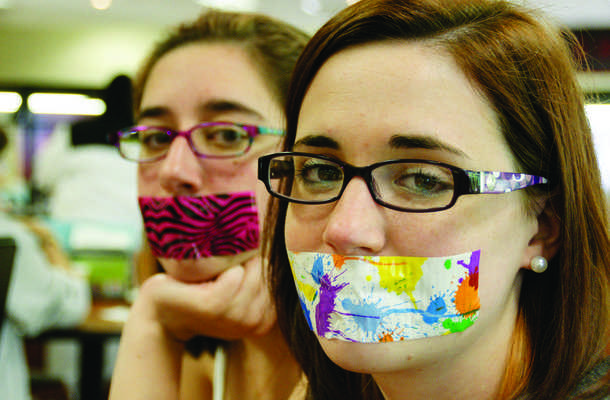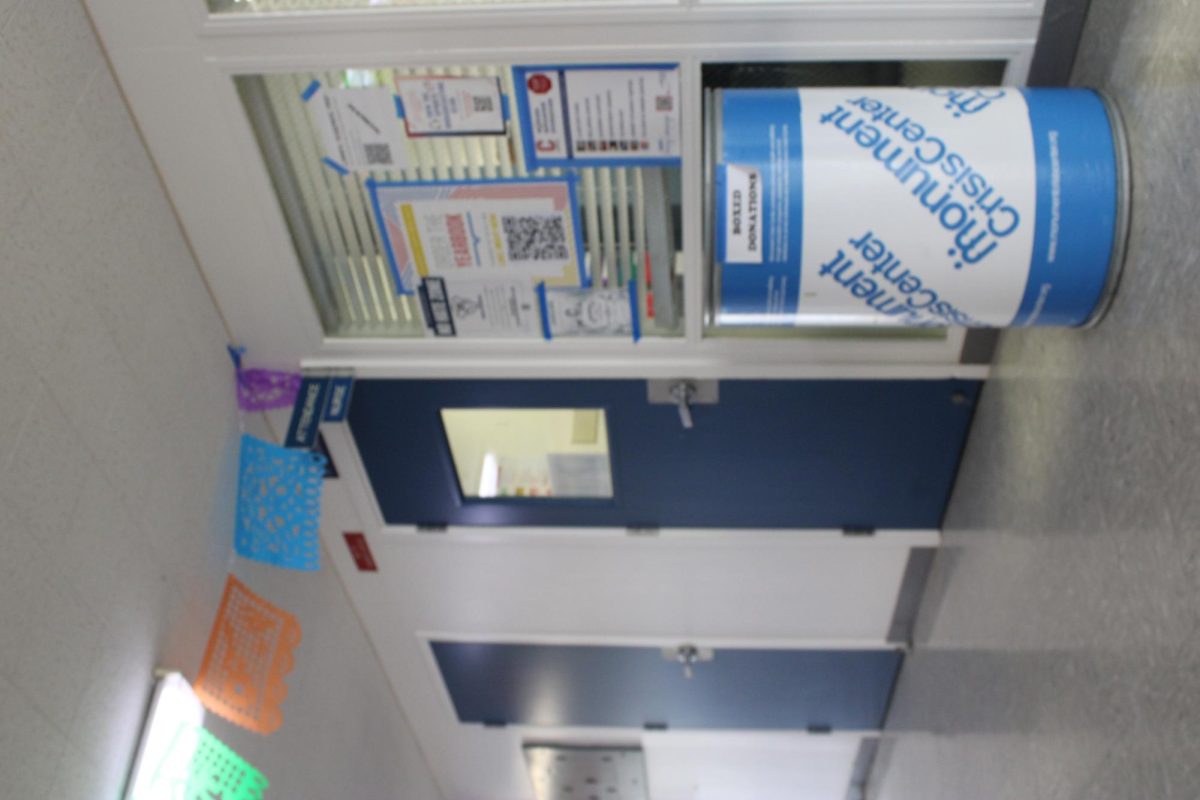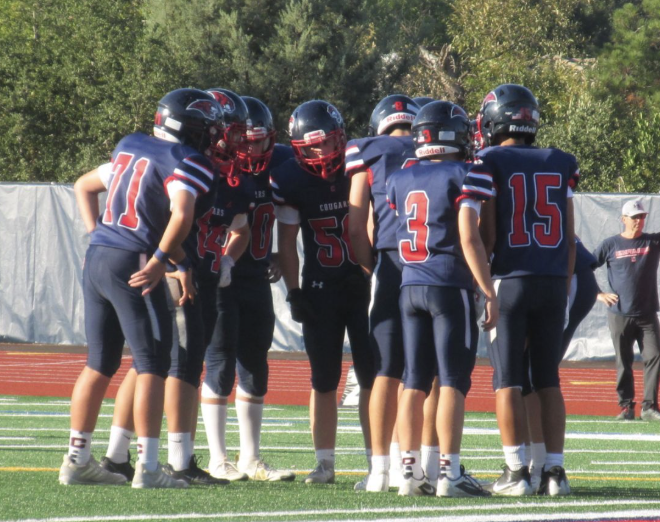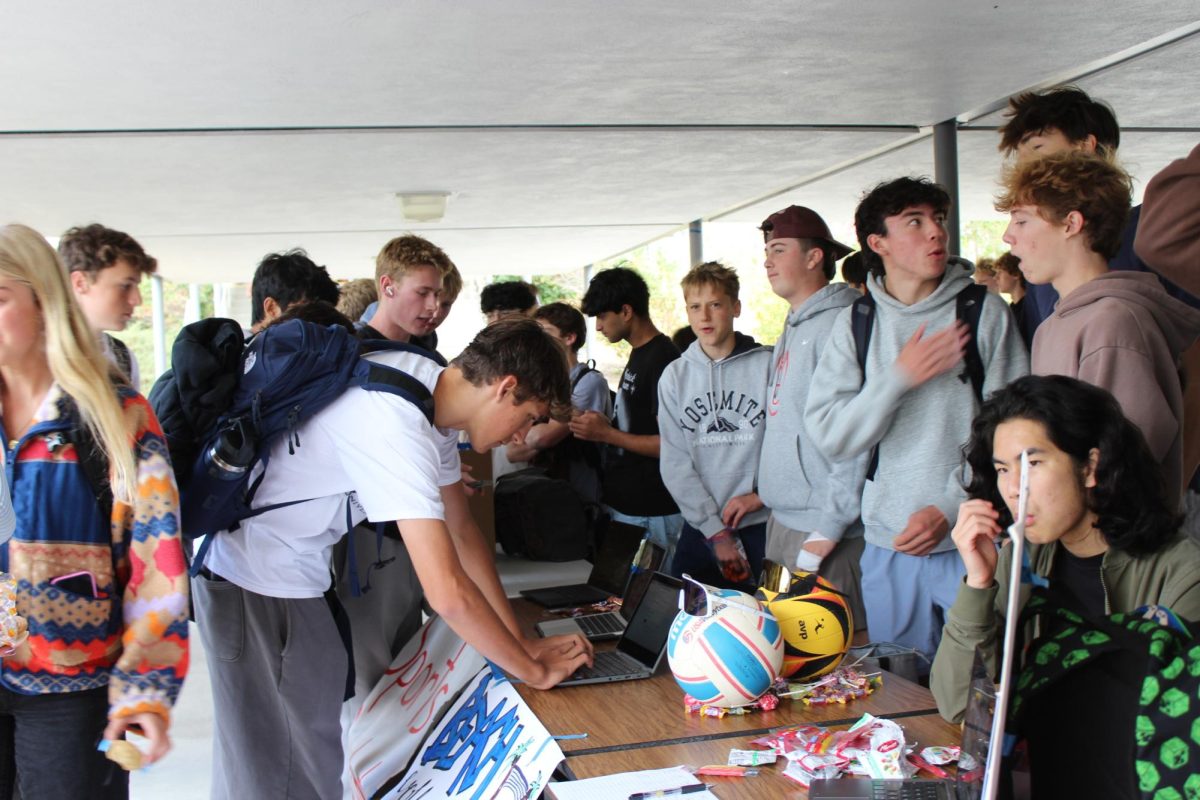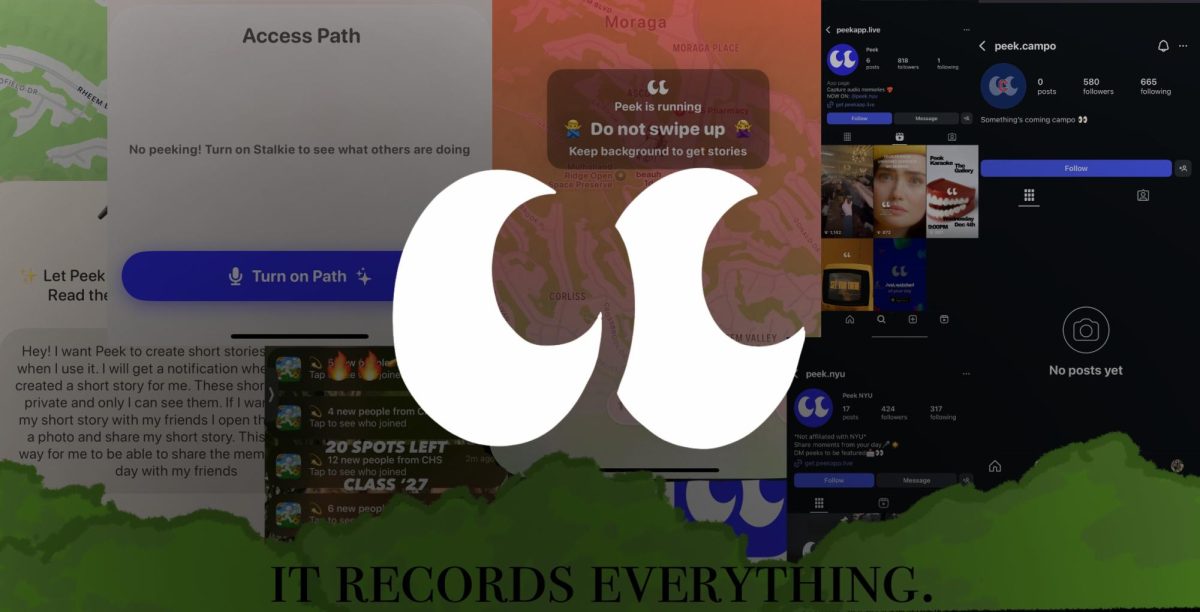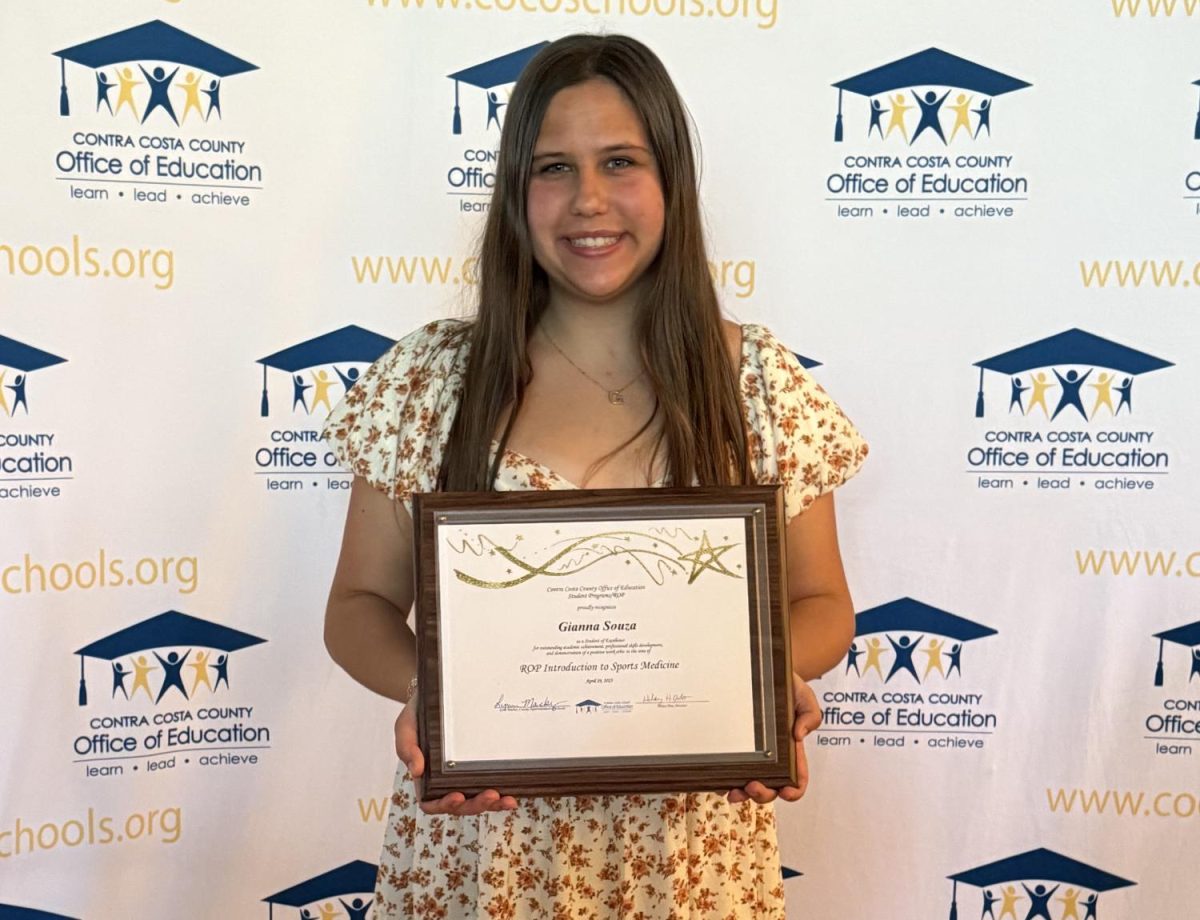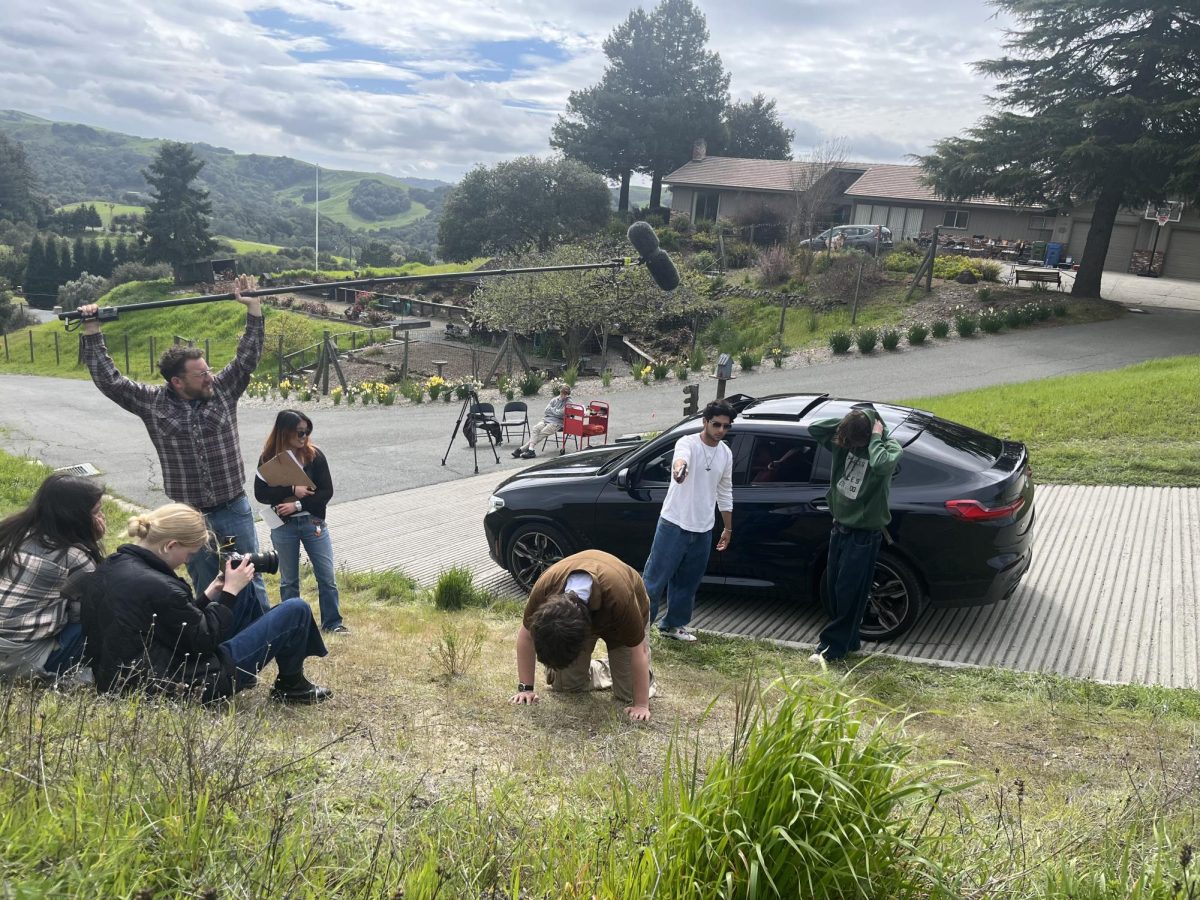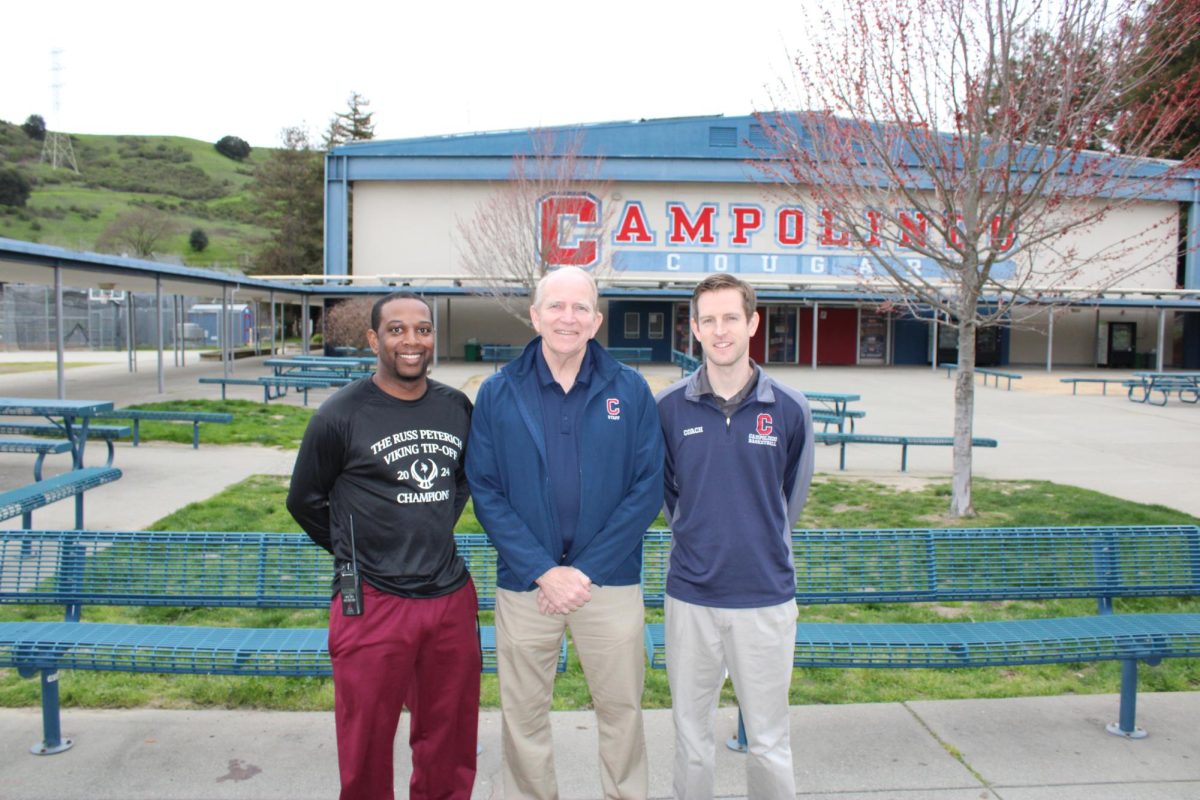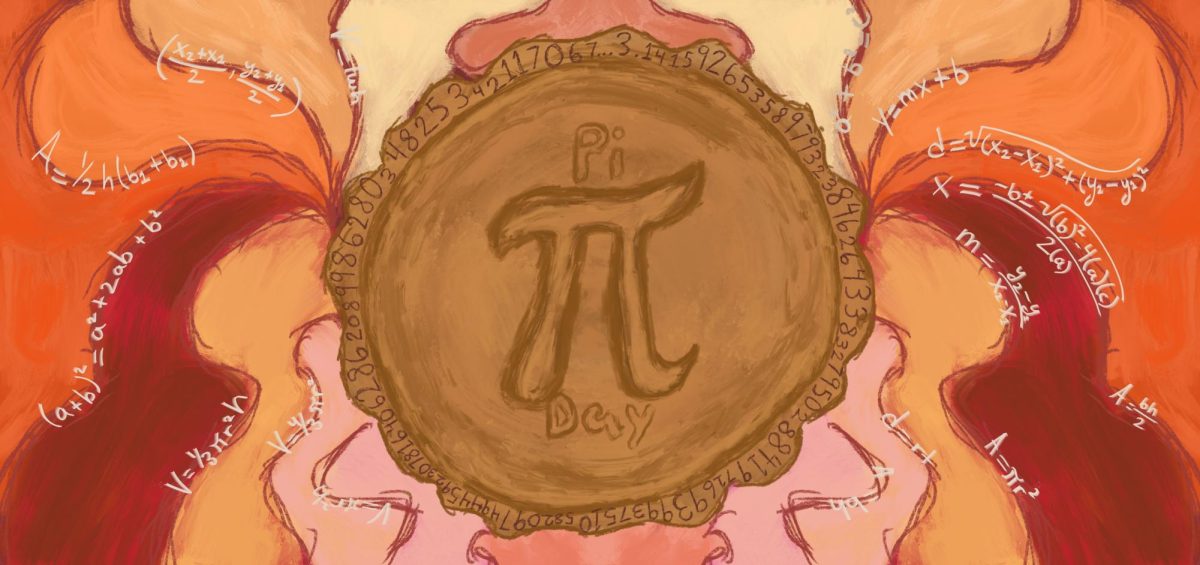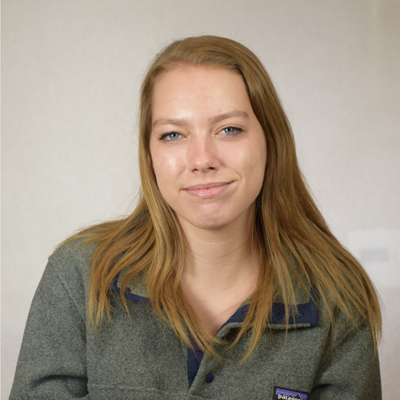The Day of Silence, a nation-wide event intended to bring awareness to the challenges LGBTQ students face in school, encouraged people of all ages to refrain from speaking for the entire day of April 17. The action was promoted on campus through posters hung by the GSA [Gay-Straight Alliance].
According to GA adviser and social studies teacher Matt Bostick, Campolindo participation in the event was sparse. “I don’t think we have too many this year, [but] some students choose to make a vow of silence for the day, which can sound easy, but for a whole day it’s pretty difficult and I think teachers are pretty understanding of it,” he said.
“The idea is that bullying and more subtle forms of harassment in schools can have a silencing effect on LGBT students, so every year this day is an opportunity for students to sort of take action to make real and make evident for everyone what that silencing effect looks like,” explained Bostick.
According to sophomore participant Lindsay Tinker, the Day of Silence draws attention to “the silence that many go through on a daily basis,” which goes unnoticed by the majority of the student body. “So many LGBT kids are forced to remain silent in fear. A lot of kids can’t be open about who they are and who they love because they are afraid,” she said.
GSA club president Uma Gaffney said that the day’s original goal was to raise awareness for anti-LGBTQ bullying. “What happens is that people, including people at Campo, use words like ‘gay’ and ‘queer’ as insults, and someone who is LGBT hears them,” she said.
“Even when the words aren’t directed at you, someone uses a word that describes you as an insult, and makes you feel like you’re not welcome and can’t talk about the way you are,” Gaffney added.
Gaffney said that intent of the action has broadened to “raise awareness for what it’s like to be LGBT in high school.” She explained, “It’s to show what it feels like to be constantly silenced, unable to participate in conversations, feeling out of sync.”
Small, but frequent instances add up to a feeling of exclusion, said Gaffney, such as “conversations about dances, where everyone talks about how boys have to ask girls to prom, and LGBT people feel excluded because, of course, that doesn’t apply to them.”
According to Gaffney, the goal of the Day of Silence hasn’t changed so much as it has expanded. “People are tired of hearing about anti-bullying rhetoric, but I think it’s really hard for allies to imagine what it’s like to not be straight, even at a school like Campo. If we can get people to pay attention and have more empathy, we’re succeeding in our ultimate goal of making this school a safer place,” she said.
“The Day of Silence is respect for all others who can’t speak out for themselves,” said sophomore Jennifer Gregory, who participated in the event in support of her friends who are pansexual. “You can’t be pansexual, the state does not allow it. They don’t have the right to even speak out about it,” she said.
“I know for some of them it’s really affecting them because they can’t talk about it; they can’t talk about how they’re pansexual really. It’s just not considered acceptable. Some of them just don’t care, others of them feel like it’s unfair that they can’t speak out for who they are and I feel like it’s not right for them,” Gregory said.
For sophomore Anshula Shrivista, the Day of Silence is intended “to bring attention to LGBTQ people who feel like they can’t speak up about themselves because of bullies.” She participated for the first time this year. “My friend has been taking part in it for a while and she brought it up and I thought it would be a good thing to try.”
Shrivista said that she thought not talking for a day would be more difficult than it turned out to be. “It got really frustrating at times because it was hard to communicate with people without talking, but it was a lot easier than I expected,” she said. “I did it for 24 hours but some people had to break it because they had choir or rehearsal.”
Students were encouraged by the GSA tell their teachers beforehand if they planned to participate in the event. “Freedom of speech in schools is more limited because not talking is a form of speech just as talking is, so in theory teachers could force a student to participate in a class by speaking,” said Bostick, who sent an email to staff on April 16 explaining the event, and that some students would be participating.
Unfortunately, some experienced difficulties balancing school responsibilities with their participation in the LGBTQ action. In at least one instance, lack of communication between Gregory and her teacher resulted in misunderstanding. “I did not tell them beforehand. I didn’t think about that, probably should have. By 2nd period my teacher already yelled at me and I had to respond at that point. They were getting really frustrated,” said Gregory.
Gregory said that she was disappointed that she didn’t make it 24 hours without speaking this year because last year she “made it through perfectly fine.”
She admitted, “it’s really difficult when you’re around other friends or something and they’re talking and your immediate response is to talk back to them.”
Gregory believes her friends support her commitment to the cause. “They all understand. The ones who know what its for don’t [deliberately make me talk.] Some of them that don’t know are kind of like ‘what are you doing,’ but anyone who knows what it’s for, they respect the fact that you can’t talk because they understand the cause,” she said.
Gaffney was disappointed that some of her classmates were less respectful of the event. “A lot of people and teachers were supportive of my decision to participate, but then again, several students treated it like a big joke, too,” she said. “I’m always hopeful that we will get more people to pay attention, but I’m always worried that the people who are making the school less safe aren’t the ones who support events like a Day of Silence.”
Nevertheless, the Day of Silence “definitely provides an opportunity for allies to publicly show support, which is important,” according to Gaffney. “No one is really surprised when LGBT students show support, which is why having straight allies in the [GSA] club is so important,” she said.
Gaffney said that the day also provides an opportunity for education. “Every time the GSA does anything public I get a bunch of questions about various LGBT topics, which I’m always happy to answer, and I’m glad people are curious,” she said.
“I think it’s a neat event. I’ve never done it myself. [At] the last school that I taught at I did see more students participating, and I think that when more students participate it really helps to clearly convey a message that I think everybody in this school, regardless of their views, can benefit from hearing,” said Bostick.
Bostick hopes that some, if not the majority of observers, were impacted by the event. “I think it depends on the person. Hopefully people are paying attention and are curious if they find one of their peers not talking,” he said.
According to Bostick, the club pulled together promotion for the Day of Silence at the last minute this year. “The club in general is almost brand new, since the old GSA collapsed before this year. We have a new advisor, new leadership, new everything this year,” Gaffney said.
“The original club president this year, Emily Fields, transferred schools and I offered to step up and take over. My vice president, Emma Pereira, and secretary, Athya Uthayakumar, are both freshmen,” said Gaffney. “There were a few meetings in the winter where it was literally just the 3 of us, but we’re getting some solid participation now. Part of our goal is just to establish the club as a safe space, and I think we’re succeeding there.”
